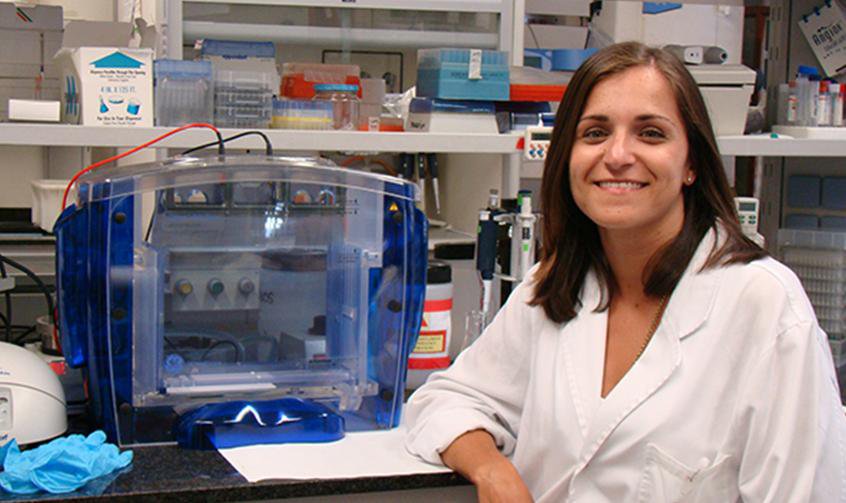"Heart attacks are one of the most common causes of death in adults in developed countries, with their incidence increasing with age. They are caused by the progressive obstruction of blood vessels due to accumulated fat material on their walls – until the block reaches a larger vessel like the coronary artery and an ischemia occurs. An ischemia is basically the inadequate blood flow into the hearth that gradually causes the ''death'' of the heart tissues. The patient affected by ischaemic attack feels pain in his chest, and running to the hospital or the nearest health centre is the only solution to reactivate cardiovascular circulation. However, it is often late.
Judit Cubedo, currently postdoctoral researcher at the Cardiovascular Research Center (CSIC-ICCC) in Barcelona, has focused her research in finding a suitable method to detect an ischemic attack in its early stages. Even before feeling the pain, she thought, other changes occur in the body, and if these changes were to be detected earlier, the risks of fatal attacks would decrease considerably. She focused her attention to the changes that an ischemic attack provokes on a number of proteins, and notably one, called APO J, that exists in our body in different forms: one – we can say the standard one – is the glycosylated form, where a glican (a sugar molecule) is attached to the protein. This process is very common and helps proteins in different functions. However, as soon as an ischemia occurs, the body ceases the production of glycosylated APO J. The protein is still produced in the body, but only under its basic, underdeveloped form. What is more important, this process commences as soon as the ischemia occurs, unlike other currently used indicators, which are activated when the damage in the heart tissues is already at an advanced state.
Cubedo developed a specific prototype kit that targets the measurement of glycosylated APO J in the blood, unlike existing kits which are not capable of distinguishing the two forms. By detecting a decrease in the protein in the blood, a heart attack can be detected in its earlier stage, and lead to further analyses and treatment before it is too late. Considering the number of patients calling into a hospital highlighting chest pain, the kit may also ''allow to differentiate the seriousness of the pathology'', a kind of quick test available to doctors to address the most urgent cases first. In the future, Cubedo foresees that this kit may be further improved and become an essential tool to detect heart attacks when it is not yet too late. In fact, ''glycosylated proteins can be used to detect a high number of pathologies'', including neurodegenerative ones."




